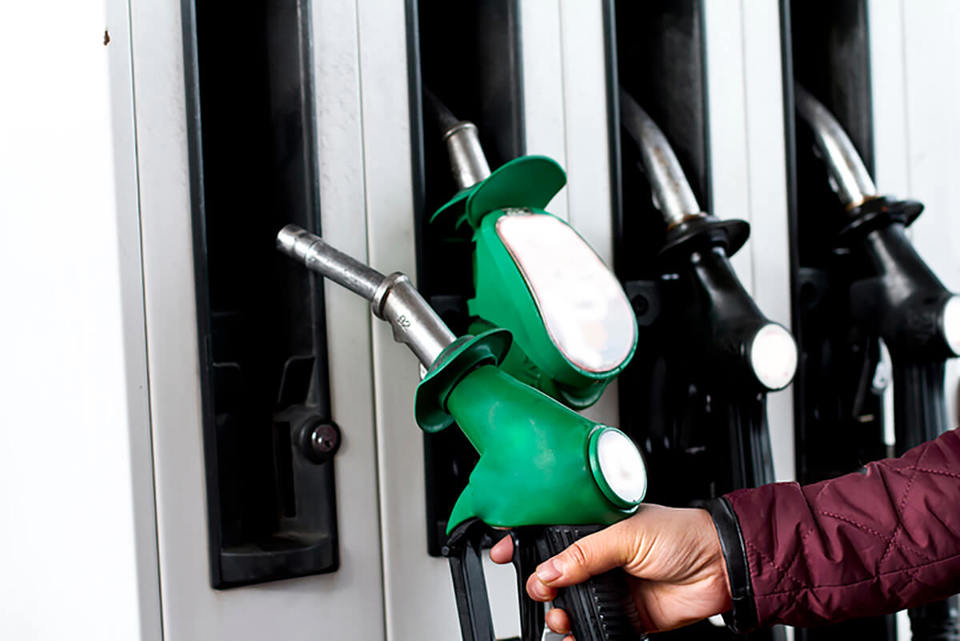There are growing calls for the Chancellor to abandon the planned hike in fuel duty, as he prepares for the Autumn Statement tomorrow (Tuesday, November 29).
The increase, which is due to be introduced from January 2012, will add around 3p to a litre of fuel. However, a further rise scheduled for August will add another 3.41p per litre – a total increase of more than 6p per litre plus VAT.
The Government scrapped a 1ppl rise at the last Budget and abolished the fuel duty escalator, which automatically increased duty by 1p higher than inflation.
If it were to scrap the planned increase in January, it would lose around £1.5 billion in duty this year. It’s a significant amount of revenue to give up at a time of austerity – especially when the Office for Budget Responsibility (OBR) is likely to downgrade its growth forecasts, just hours before Chancellor George Osborne delivers his statement to the House of Commons.
However, with growth crucial to securing the recovery, axing the increase would offer a helping hand to business and ultimately boost the Treasury’s coffers.
“The instinct to raise taxes to fill a massive budget deficit heaps more cost pressure on business and stymies economic growth and must be suppressed,” said Theo de Pencier, chief executive officer at the Freight Transport Association (FTA).
It was a similar message from the Road Haulage Association (RHA), which said UK growth and competitiveness could ill-afford further increases in diesel duty that is already by far the highest in the EU.
Meanwhile, the AA has written to the Chancellor urging him to revert back to the old system of setting annual fuel duty, which takes into account current economic and social conditions – not an automatic increase based on inflation.
AA president Edmund King said: “Although we fully recognise the need to balance the books we also believe the time has come for activity to be stimulated through lower pump prices.”
The Government has also witnessed the strength of feeling from its own backbenchers during a debate in the House of Commons.
The debate was triggered by an e-petition signed by more than 100,000 people, which was launched by the Fair Fuel campaign, and it ended with a majority of MPs urging the Government scrap the scheduled fuel duty increases.
However, Business Secretary Vince Cable warned fleets not to expect any “freebies”.
“There are a lot of ideas going round at the moment on cutting taxes and increasing spending, and the Government isn’t in the position to do a lot of this,” he said. “We’ve got a very big budget deficit and the top priority is getting that down.”
His words came the day after the Office for National Statistics – a Government body – issued a press release reporting that the Government’s take from the pump price of petrol had dropped from 81% in 2001/02 to 66% in 2009/10.
It said that although petrol duty had been rising, “it has not kept up with overall fuel price rises”.
However, the figures masked an increase in take year-on-year – in 2008/09 the Government’s share was 62%.
Fleet operators have been hit by a series of pump price rises in recent months caused by volatility on the world oil markets and ACFO is asking the Government not to add to their misery.
“ACFO is calling on the Government to do its part by not further increasing fuel duty in 2012,” said ACFO director John Pryor.
“Additionally, ACFO would like to see the Government show it is prepared to consider reducing fuel duty should there be any further significant fuel price increases.”
But if the planned hike goes ahead, the fleet operator group is pushing HMRC to recognise the increase in its review of Advisory Fuel Rates (AFRs), which takes effect from January.
Expert opinion divided on whether increase will be abandoned
Expert opinion is divided as to whether the Chancellor will defer the planned increase in fuel duty for a second time.
David Rawlings, director of fleet consultancy firm Business Car Finance (BCF) Wessex, told Fleet News that the Chancellor faced a balancing act of what he would like to do, with what he can afford to do.
He explained: “I think the planned fuel duty rise in January will go ahead purely because it will raise much needed revenue.
“If this income is deferred, where will it be generated from?
“I also think the Government will assume that increasing fuel duty will encourage manufacturers to continue R&D into improved fuel consumption, hybrids and alternative fuels, fleets will try to reduce unnecessary journeys and we will all consider alternative forms of transport.”
But Alastair Kendrick, tax director at MacIntyre Hudson, said: “We are expecting this announcement to be concentrated on aspects which will help ‘business’ and in this area I would expect an announcement that the planned fuel duty rise in January will be deferred.
“I am also expecting announcements on revenue generation, which will concentrate on any areas of tax avoidance and extensions to the previous statement in relation to disguised remuneration. However, this is unlikely to lead to any program to raise tax in regard to fleet.”
Looking ahead to the spring Budget, Kendrick said it is very likely fleets will see an increase in benefit-in-kind on cars with adjustments to the CO2 emission calculation and the provision of fuel provided for private use.
He added: “I also expect in the long term an announcement on the calculation of VAT in respect of contract hire – currently the 50% block – being revised to be made by some reference to business over private use. At present the UK Government is in breach of EU law by permitting a 50% block so this needs to be addressed.”




















Login to comment
Comments
No comments have been made yet.